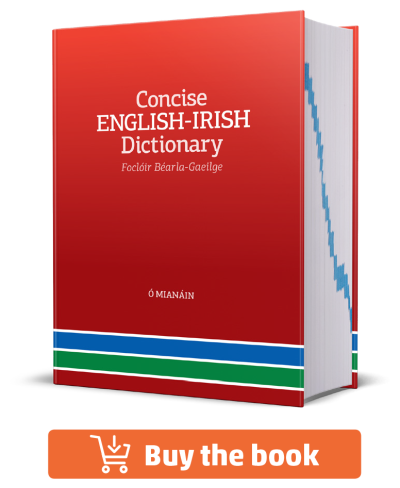NB: The Grammar Wizard displays the rules governing the lenition (i.e. séimhiú) of the noun following the preposition ‘ar’ in ordinary usage. Note, however, that there are certain cases in which the noun is not lenited (ar bord, ar fáil, etc). See below the relevant excerpt from Graiméar Gaeilge na mBráithre Críostaí (An Gúm, 1999), page 28 (translation to English provided) »
4.7 The initial consonant is usually lenited when the noun or verbal noun is governed by the preposition ar: ar bhád; ar bhealach; ar bhord (= ar thábla); ar chaoi; ar chor ar bith; ar chuntar; ar dheis; ar dhóigh (= ar shlí); ar dhul amach; ar fhaitíos; ar fheabhas; ar mhodh; ar shiúl (= imithe); ar theacht abhaile dom.
4.8 The noun is not lenited in the cases below:
in certain phrases which denote a state, such as the following: ar bith; ar bogadh; ar buile; ar cois (= ar siúl); ar crochadh; ar díol; ar dóigh (= ar fheabhas); ar doimhne; ar fad; ar fáil; ar fán; ar fiuchadh; ar forbhás (= corrach); ar fónamh; ar fuaidreamh; ar gor; ar maos; ar meisce; ar seachrán; ar siúl (= á dhéanamh; tosaithe); ar tarraingt; ar tiús; ar triomú
-
in the following phrases if the noun isn’t qualified (usually involving a general situation):
| No qualification | But with qualification |
| ar barr | ar bharr an tí |
| ar cairde (= gan airgead síos) | ar chairde fada |
| ar colbha | ar cholbha na leapa |
| ar corr | ar chorr an bhoird |
| ar deireadh | ar dheireadh an bháid |
| ar muir | ar Mhuir Meann |
| ar tír | ar thír na hÉireann |
| ar tosach | ar thosach an tslua |
in the following phrases, despite the fact that the noun is qualified: ar ball [beag]; ar béal maidine; ar bord [loinge]
The second particle of these compound prepositions is not lenited: ar feadh; ar fud; ar son; ar tí.
From Graiméar Gaeilge na mBráithre Críostaí (An Gúm, 1999)
